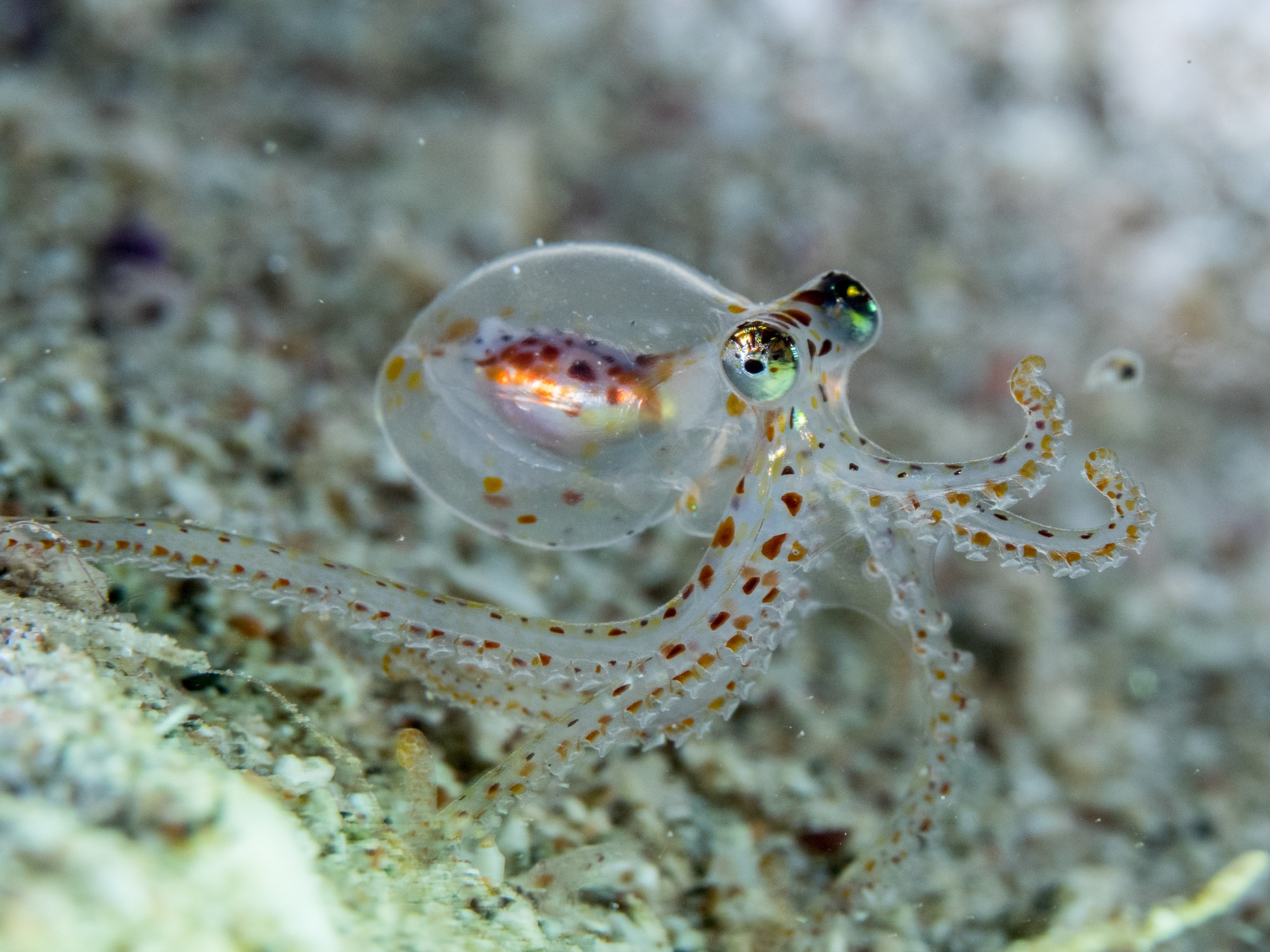

If you’ve ever cooked a big holiday meal or tried to learn a complicated piece on the piano, you might’ve wished that you had more than two arms. While humans still lack the number of appendages that cuttlefish, squid, and octopuses have, scientists are learning more about the similarities between our complex nervous systems.
Scientists peered back through time to further examine the last known common ancestor between humans and cephalopods. Our shared cousin is a primitive wormlike animal that had simple eyespots instead of real eyes and wasn’t very intelligent. Roughly 600 million years ago, the animal kingdom split into vertebrates (animals with backbones) and invertebrates (those without backbones). The vertebrates went on to develop the large and complex brains that we see today, while the invertebrates didn’t. Except for the cephalopods.
[Related: Octopuses are not aliens, but boy are they a bunch of beautiful weirdos.]
In a study published last week in the journal Science Advances, a international team of researchers writes that the reason octopuses have developed complex nervous systems is because the eight-legged wonders have a massively expanded repertoire of microRNAs (miRNAs) in their neural tissue. These genes encode small pieces of RNA that bind to messenger RNA (the RNA that delivers instructions for protein production in cells). Despite thousands of years of evolution, these binding sites were conserved in cephalopods, which indicates that these novel miRNAs have an important function.
This huge array of miRNAs also developed in other vertebrates.
“So, this is what connects us to the octopus!” said Nikolaus Rajewsky, from the Max Delbrück Center (MDC-BIMSB), and a co-author of the paper, in a statement. This finding potentially means that miRNAs play a crucial role in the development of complex brains in organisms, specifically cephalopods.
Previous studies that analyzed the octopus genome showed that a lot of RNA editing occurs in these cephalopods, which means that they use certain enzymes that can recode their RNA quite frequently.
“This got me thinking that octopuses may not only be good at editing, but could have other RNA tricks up their sleeve too,” said Rajewsky. “There was indeed a lot of RNA editing going on, but not in areas that we believe to be of interest.”
[Related: Female octopuses will chuck seashells at males who irk them.]
The team found the dramatic expansion of a well-known group of RNA genes and 42 novel miRNA families in octopus specimens. The miRNA families were more specifically located in the neural tissue and mostly in the brains. Since the genes were saved during the evolutionary process, the team theorizes that they were clearly beneficial to their survival and are important to their whole nervous system.
“This is the third-largest expansion of microRNA families in the animal world, and the largest outside of vertebrates,” said lead author Grygoriy Zolotarov, a scientist who interned in Rajewsky’s lab at MDC-BIMSB while finishing medical school in Prague, in a statement. “To give you an idea of the scale, oysters, which are also mollusks, have acquired just five new microRNA families since the last ancestors they shared with octopuses—while the octopuses have acquired 90!”
Mollusks are not exactly known for their intelligence. However, octopus are unique among invertebrates from an evolutionary perspective and are highly intelligent. They have a central brain and a peripheral nervous system, are very curious, have great memories, and can recognize people and even show preference for some individuals more than others.
“They say if you want to meet an alien, go diving and make friends with an octopus,” Rajewsky said.
